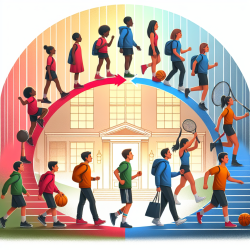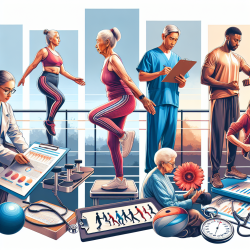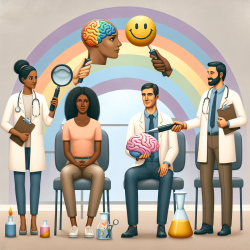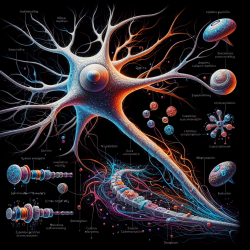Introduction
In the wake of the COVID-19 pandemic, children's physical activity levels have significantly declined, impacting their overall well-being. This decline is concerning given the well-documented benefits of physical activity on children's physical, psychological, and cognitive health. A recent study published in the International Journal of Environmental Research and Public Health evaluated the impact of the Build Our Kids’ Success (BOKS) after-school program on children's physical activity and well-being during the pandemic. This blog explores how practitioners can leverage these findings to enhance their practice and improve outcomes for children.
The Study: A Mixed-Methods Evaluation
The study involved children in grades 4-6, their parents, and program leaders from after-school programs in Nova Scotia, Canada. Using a combination of quantitative measures and qualitative interviews, the study assessed the impact of the BOKS program on children's physical activity levels, enjoyment, and overall well-being. The results indicated that participation in BOKS had a positive impact on children's physical and emotional health, even amidst pandemic-related restrictions.
Key Findings and Implications for Practitioners
- Increased Physical Activity: The BOKS program provided a structured environment for physical activity, which was crucial during the pandemic when other opportunities were limited. Practitioners should consider integrating similar programs to ensure children remain active.
- Enhanced Emotional Well-being: Participation in BOKS was associated with improved mood, behavior, and cognitive function. Encouraging physical activity can be a valuable tool for supporting children's emotional health.
- Boosted Confidence and Social Skills: The program's non-competitive nature helped children, especially those less inclined towards sports, gain confidence and build social connections. Practitioners should foster inclusive environments that cater to diverse abilities and interests.
- Integration with School Activities: BOKS was well-received and easily integrated into existing school programs. Collaboration with schools can enhance the reach and effectiveness of such initiatives.
Encouraging Further Research and Implementation
While the study highlights the benefits of after-school physical activity programs, further research is needed to explore long-term impacts and optimize program delivery. Practitioners are encouraged to collaborate with researchers to gather data and refine strategies that promote children's health and well-being.
To read the original research paper, please follow this link: The Impact of an After-School Physical Activity Program on Children’s Physical Activity and Well-Being during the COVID-19 Pandemic: A Mixed-Methods Evaluation Study.










